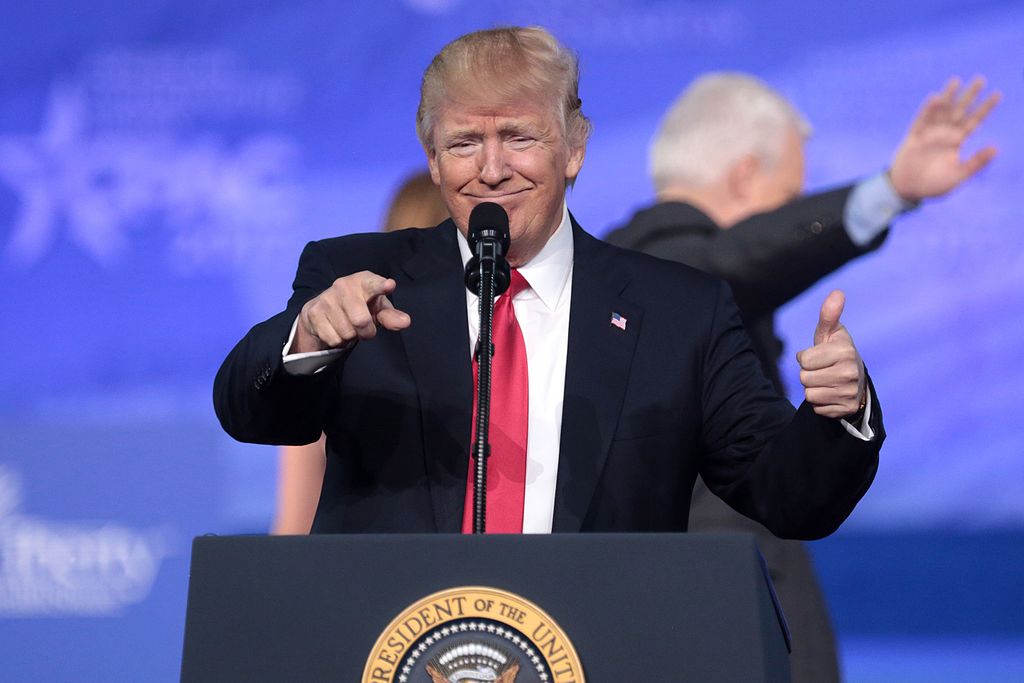As President Donald Trump embarks on his second term in January 2025, his administration is poised to implement a series of policies that could significantly reshape the technology industry. These initiatives encompass regulatory reforms, antitrust actions, and strategic appointments, reflecting a comprehensive approach to addressing longstanding concerns about Big Tech's influence and operations.
Antitrust Measures and Regulatory Reforms
A central component of Trump's tech policy is the intensification of antitrust scrutiny on major technology firms. The administration has signaled intentions to dismantle monopolistic structures within the industry, aiming to foster competition and innovation. This approach aligns with the perspectives of key appointees who have been vocal critics of Big Tech's market dominance.
Strategic Appointments Reflecting a Hardline Stance
The selection of individuals for pivotal roles underscores the administration's commitment to stringent oversight of the tech sector:
-
Attorney General Nominee: Rep. Matt Gaetz
Known for his critical views on tech companies, Gaetz has advocated for robust antitrust actions and has expressed concerns over free speech issues related to social media platforms. -
Federal Communications Commission (FCC) Chair Nominee: Brendan Carr
Carr has a history of challenging major tech firms and has called for the elimination of Section 230 protections, which shield online platforms from liability for user-generated content. -
Department of Government Efficiency Head: Elon Musk
The appointment of Musk, a prominent entrepreneur, suggests a focus on reducing bureaucratic hurdles and promoting innovation within the tech industry.
Project 2025: A Blueprint for Tech Policy
The administration's tech strategy is influenced by "Project 2025," a policy document developed by conservative think tanks outlining a roadmap for governance. The project advocates for expanding presidential powers, deregulating industries, and implementing measures that could significantly impact media and technology policies. Notably, several of Trump's appointees contributed to this document, indicating its potential influence on forthcoming policies.
Implications for Big Tech and the Broader Industry
The proposed policies have elicited varied reactions within the tech community:
-
Increased Oversight: Companies may face heightened scrutiny regarding antitrust practices, potentially leading to structural changes and increased competition.
-
Regulatory Uncertainty: The potential repeal of Section 230 could alter the operational landscape for social media platforms, affecting content moderation and liability.
-
Innovation Dynamics: While deregulation efforts aim to spur innovation, concerns persist about the balance between fostering technological advancement and ensuring consumer protection.
Conclusion
President Trump's forthcoming tech policies represent a concerted effort to recalibrate the relationship between the government and the technology sector. By implementing stringent regulatory measures and appointing officials with critical perspectives on Big Tech, the administration seeks to address issues of market dominance and accountability. The unfolding developments will be closely monitored by industry stakeholders, policymakers, and consumers, as they hold the potential to redefine the technological landscape in the United States.



 Trump to Attend White House Correspondents’ Dinner 2026, Ending Long Boycott
Trump to Attend White House Correspondents’ Dinner 2026, Ending Long Boycott  Trump Says U.S. Attacks on Iran Will Continue, Warns of More American Casualties
Trump Says U.S. Attacks on Iran Will Continue, Warns of More American Casualties  Trump Says U.S.-UK Relationship Has Deteriorated After Starmer Hesitates on Iran Strikes
Trump Says U.S.-UK Relationship Has Deteriorated After Starmer Hesitates on Iran Strikes  Supreme Court Backs GOP Lawmaker in New York Redistricting Fight Ahead of Midterms
Supreme Court Backs GOP Lawmaker in New York Redistricting Fight Ahead of Midterms  Trump’s Iran Strikes Spark War Powers Clash in Congress
Trump’s Iran Strikes Spark War Powers Clash in Congress  Australia Rules Out Military Involvement in Iran Conflict as Middle East Tensions Escalate
Australia Rules Out Military Involvement in Iran Conflict as Middle East Tensions Escalate  UK Accepts U.S. Request to Use British Bases for Defensive Strikes on Iranian Missiles
UK Accepts U.S. Request to Use British Bases for Defensive Strikes on Iranian Missiles  U.S. Lawmakers Question Trump’s Iran Strategy After Joint U.S.-Israeli Strikes
U.S. Lawmakers Question Trump’s Iran Strategy After Joint U.S.-Israeli Strikes  Why did Iran bomb Dubai? A Middle East expert explains the regional alliances at play
Why did Iran bomb Dubai? A Middle East expert explains the regional alliances at play  Suspected Drone Strike Hits RAF Akrotiri Base in Cyprus, Causing Limited Damage
Suspected Drone Strike Hits RAF Akrotiri Base in Cyprus, Causing Limited Damage  Trump Says U.S. Combat Operations in Iran Will Continue Until Objectives Are Met
Trump Says U.S. Combat Operations in Iran Will Continue Until Objectives Are Met  Middle East Conflict Escalates After Khamenei’s Death as U.S., Israel and Iran Exchange Strikes
Middle East Conflict Escalates After Khamenei’s Death as U.S., Israel and Iran Exchange Strikes  Argentina Tax Reform 2026: President Javier Milei Pushes Lower Taxes and Structural Changes
Argentina Tax Reform 2026: President Javier Milei Pushes Lower Taxes and Structural Changes  Pentagon Downplays ‘Endless War’ Fears After U.S. Strikes on Iran Escalate Conflict
Pentagon Downplays ‘Endless War’ Fears After U.S. Strikes on Iran Escalate Conflict  AI is already creeping into election campaigns. NZ’s rules aren’t ready
AI is already creeping into election campaigns. NZ’s rules aren’t ready  U.S. Military Strikes on Iran Complicate Xi-Trump Summit and Expose China’s Energy Risks
U.S. Military Strikes on Iran Complicate Xi-Trump Summit and Expose China’s Energy Risks 
































